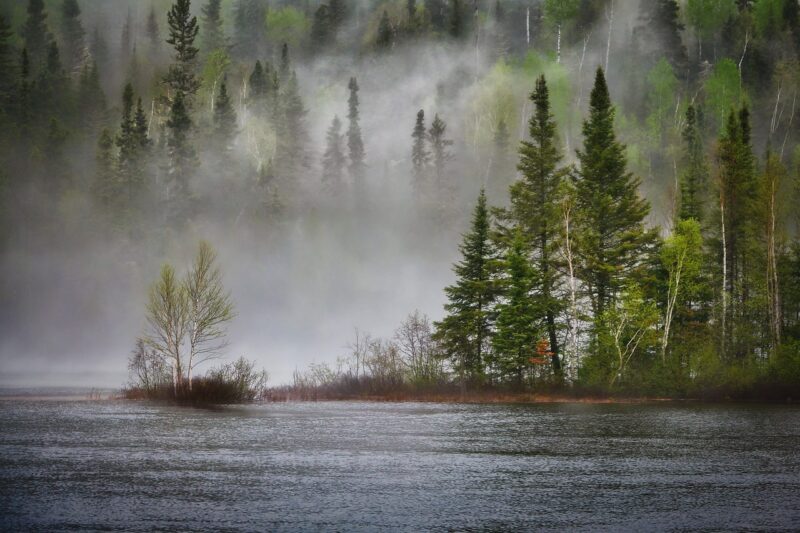The Importance of Freshwater Conservation and Protecting River Ecosystems
November 14, 2024

Freshwater ecosystems, particularly rivers, are among the most diverse and vital habitats on our planet. They not only support millions of plant and animal species but also provide essential services to humanity. Freshwater sources are crucial for drinking water, agriculture, sanitation, and recreation. However, these precious resources face dire threats from pollution, overuse, climate change, and habitat destruction. In this article, we delve into the importance of freshwater conservation and the need to protect our river ecosystems for future generations.
1. What are Freshwater Ecosystems?
Freshwater ecosystems encompass a variety of environments, including rivers, lakes, ponds, wetlands, and streams. These ecosystems are characterized by a low salt concentration, making them distinct from marine environments. They support a wide array of life, including fish, amphibians, insects, and numerous aquatic plants. Rivers, in particular, act as dynamic systems that flow continuously, providing unique habitats that change over time.
The significance of freshwater ecosystems cannot be overstated. They:
- Support biodiversity, with over 10% of the planet’s species found in freshwater environments.
- Provide drinking water for more than 2 billion people.
- Facilitate agricultural irrigation, crucial for food production.
- Play a key role in flood regulation and water filtration.
- Offer recreational opportunities and support tourism that benefits local economies.
Given their importance, it is vital to understand the current threats facing these ecosystems and the steps needed to protect them.
2. The Threats to Freshwater Ecosystems
Despite their importance, freshwater ecosystems are under severe threat from various anthropogenic activities. Key threats include:
2.1. Pollution
Pollution remains one of the most critical challenges facing rivers today. Common sources of contamination include:
- Agricultural runoff, which introduces pesticides and fertilizers into waterways, disrupting the delicate balance of aquatic ecosystems.
- Industrial discharge, releasing heavy metals and toxic chemicals that can harm aquatic life and enter the food chain.
- Plastic waste, which accumulates in rivers and can cause direct harm to wildlife and habitats.
2.2. Over-extraction of Water
The growing demand for freshwater for agricultural, industrial, and domestic needs has led to over-extraction. Excessive withdrawal of water from rivers can lead to:
- Reduced flow rates, impacting the overall health of the river ecosystem.
- Loss of habitats for fish and other aquatic organisms, which depend on specific flow conditions for breeding and survival.
- Deterioration of water quality as stagnant water becomes prone to pollution and eutrophication.
2.3. Climate Change
Climate change poses a significant threat to freshwater ecosystems, affecting temperature, precipitation patterns, and river flows. Increased flooding and droughts can lead to:
- Altered habitats, which can impact species distribution and survival rates.
- Increased sediment erosion, further degrading river quality and habitat structure.
- Changes in the timing of biological events, such as fish spawning, disrupting entire ecosystems.
2.4. Habitat Destruction
Urbanization, dam construction, and infrastructure development often lead to habitat destruction, affecting riverine ecosystems. Activities such as:
- Dredging and channelization alter natural water flow, impacting biodiversity and natural habitats.
- Riparian zone destruction reduces the buffer against pollution and erosion, compromising water quality.
- Construction of dams affects fish migration and alters natural hydrology, threatening entire species.
Understanding these threats is crucial for implementing effective conservation strategies.
3. Why Freshwater Conservation Matters
Conserving freshwater ecosystems is essential not just for environmental health but also for human well-being. Here are several reasons why we must prioritize freshwater conservation:
3.1. Biodiversity Support
Freshwater ecosystems are hotspots of biodiversity. Protecting these habitats ensures the survival of countless species, many of which are not found anywhere else. A healthy ecosystem maintains ecological balance and provides resilience against environmental changes.
3.2. Provision of Ecosystem Services
Rivers provide vital ecosystem services, including:
- Water filtration and purification, which are essential for clean drinking water.
- Flood control and storm surge defense through natural vegetation absorption.
- Carbon sequestration, aiding in climate change mitigation.
Protecting freshwater resources means safeguarding these invaluable services that benefit humanity and the global climate.
3.3. Human Health and Community Well-being
Access to clean and sustainable freshwater sources is critical for human health. Freshwater conservation helps:
- Reduce waterborne diseases by maintaining clean water sources for communities.
- Support local economies by ensuring consistent water supply for agriculture and tourism.
- Enhance recreational opportunities, contributing to mental well-being and community cohesion.
The benefits of conserving freshwater extend beyond environmental considerations—they also permeate economic, social, and health dimensions.
4. Strategies for Freshwater Conservation
To mitigate the challenges facing freshwater ecosystems, various strategies can be implemented at both local and global levels:
4.1. Sustainable Water Management
Adopting sustainable water management practices is vital for maintaining freshwater resources. This includes:
- Implementing efficient irrigation techniques that reduce water waste in agriculture.
- Promoting water conservation measures among households and industries.
- Enhancing watershed management to protect water sources from pollution and degradation.
4.2. Pollution Control Measures
To tackle pollution effectively, we can:
- Regulate industrial discharges and agricultural runoff to ensure water quality is maintained.
- Encourage community clean-up initiatives to remove trash and pollutants from local rivers.
- Support research and technology aimed at pollution detection and prevention.
4.3. Restoration Projects
Restoring degraded river ecosystems can enhance their health and recovery. Efforts may include:
- Replanting native vegetation along riverbanks to reduce erosion and improve water quality.
- Removing dams and barriers that disrupt fish migration and ecological flow.
- Creating protected areas for critical habitats to ensure biodiversity conservation.
Prioritizing these strategies will be crucial for protecting freshwater ecosystems for generations to come.
5. Conclusion
The conservation of freshwater ecosystems is paramount for maintaining biodiversity, ensuring clean water access, and promoting overall human well-being. Freshwater resources are invaluable not just for their ecological role but also for their social and economic implications.
As stewards of our planet, we must take action to protect our rivers and freshwater ecosystems. By implementing sustainable practices, reducing pollution, and committing to restoration efforts, we can ensure that future generations inherit a healthy and resilient freshwater environment. Let us work together to prioritize freshwater conservation for the health of our planet and its people.






